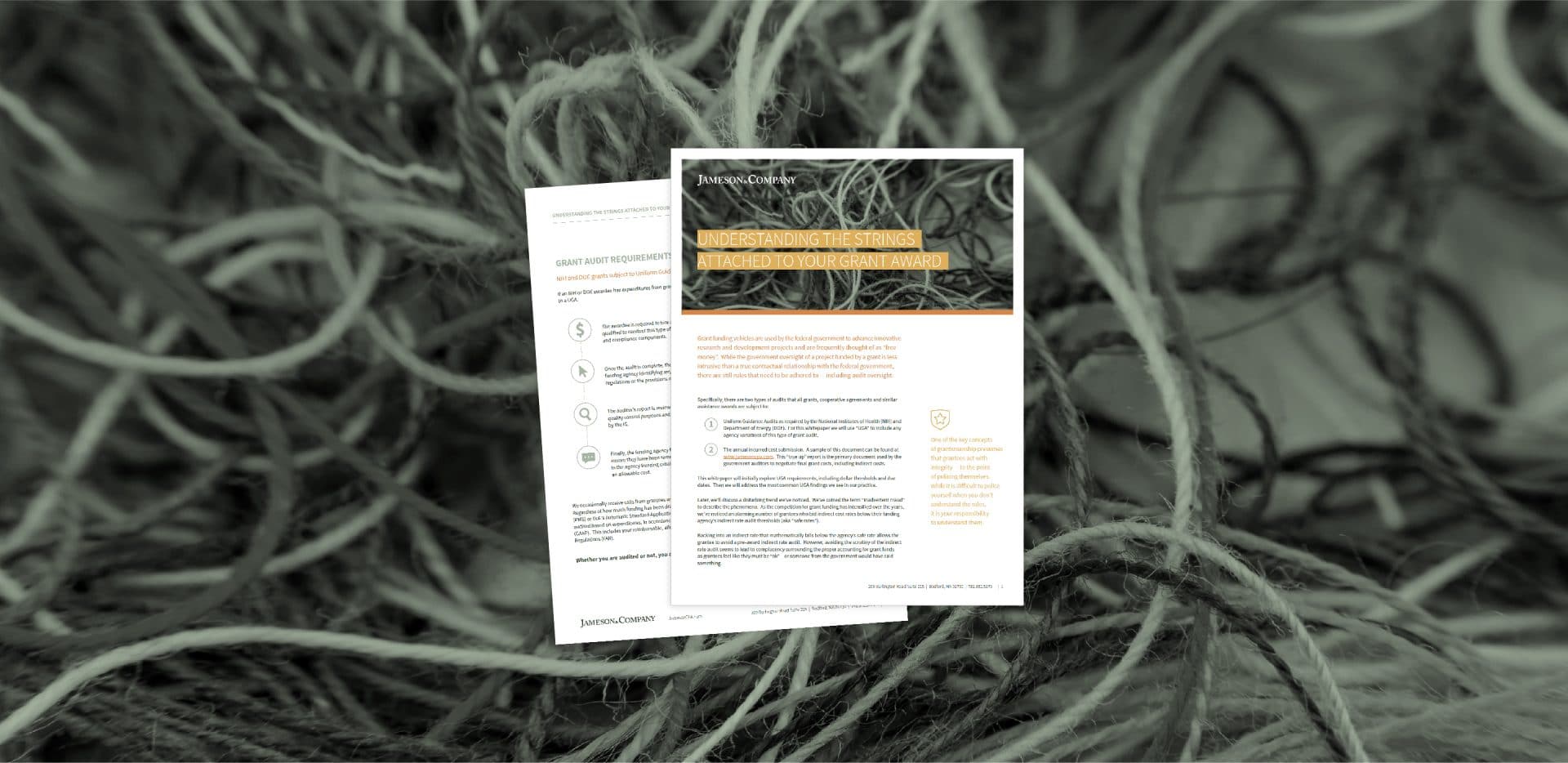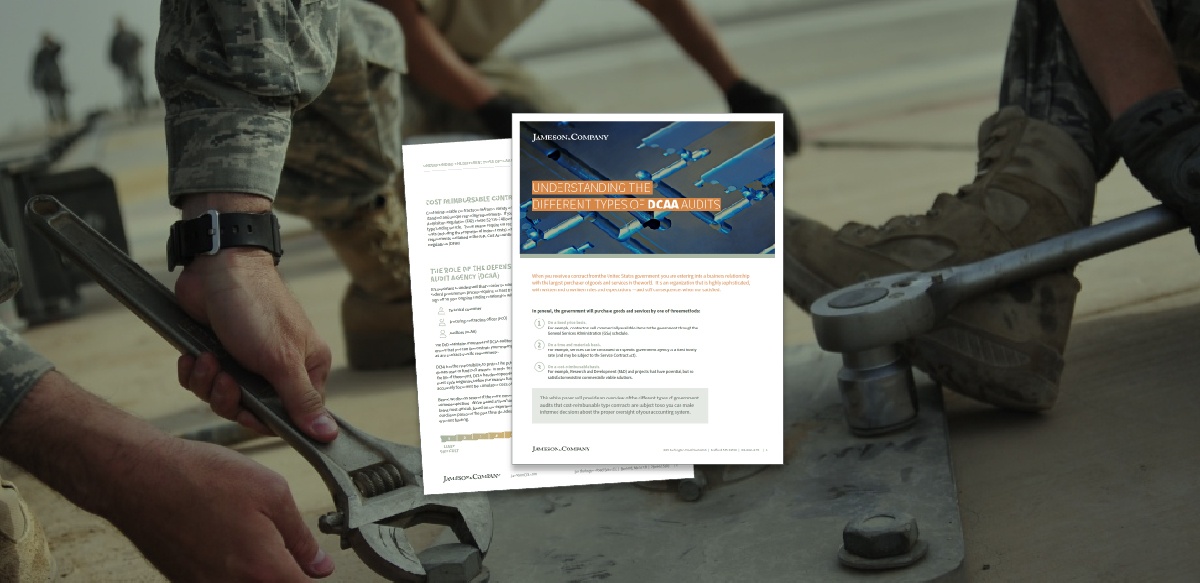The Seven Most Common DCAA Audits
Government contracts and grants demand FAR-compliant accounting. This white paper will give you all the basic information you need to navigate the rules and regulations, set up a compliant accounting system, and avoid trouble.



